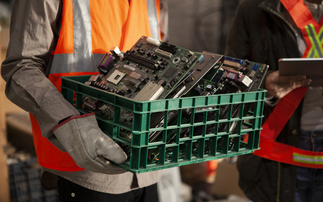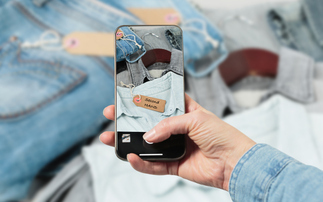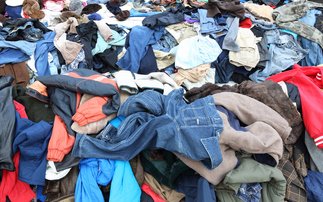Dow's Marco ten Bruggencate provides a glimpse into its new partnership with Mura Technology though which it is developing a new advanced recycling solution for plastics
Only nine per cent of plastic ever made has been recycled globally, and almost 80 per cent of plastic ends up in landfill or our environment. These are sobering statistics, and something we as a plastics manufacturer need to take urgent action to help solve.
Of course, there are a number of factors at play here. We need to see greater harmonisation of collection and sorting infrastructure, and clearer labelling to make recycling easier to understand for consumers. We need to design with the end in mind and ensure that all packaging placed on shelves is fully recyclable, while maintaining the same levels of safety, protection and functionality that flexible plastic has always been able to offer brand owners and retailers. We also need to invest in technologies that can operate at commercial scale, so that all plastics, including food packaging, can be recycled and not just some.
Dow recently made a big step forward in the pursuit of this ambition, announcing a new partnership with Mura Technology, which is pioneering a new advanced recycling solution for plastics.
What is advanced recycling?
Advanced recycling, also known as chemical or feedstock recycling, is the process of breaking down waste plastics into their most basic constituent parts - monomers and other chemical elements - to produce liquid or gas 'feedstocks', which can then be used to make virgin plastic.
The process allows us to take back a far greater range of plastics waste - including flexible films, which are typically hard to recycle - and turn it into new and valuable applications. Much of this type of waste is currently going to landfill or being incinerated but this technology essentially makes waste infinitely recyclable - something that can't be achieved with simpler recycling processes like mechanical recycling. This is a really exciting prospect.
How does it differ to mechanical recycling?
Both of these complementary technologies are required if we want to see a marked improvement in recycling rates across Europe. These recycling systems are complementary to each other, which is why we are pursuing both. Mechanical recycling remains incredibly important of course and currently accounts for more than 99 per cent of recycling volumes in Europe. With this technology, waste plastics are taken back and processed into secondary products without significantly changing the structure of the material. The waste is sorted into the type of plastic it was made from, washed and broken down into pellets to be re-used in products like roads and construction materials. It has its limitations though. It can't, for example, easily recycle food packaging because of contamination issues and stringent packaging regulations. This method of processing also degrades the product with each round of recycling, leaving an inferior quality of plastic which has more basic applications. Having said that, by designing for recyclability, we will create a bigger pool of waste plastic that can be used in mechanical recycling
We need to use both methods of recycling to make a real improvement in recycling rates across Europe and we will continue to innovate and invest in this important area of work.
But advanced recycling will be critical to meeting both the EU's legally binding plastics packaging recycling target of 55 per cent by 2030, and our voluntary commitment under the EU's Circular Plastic Alliance of 100K metric tonnes of recycled plastic to European customers by 2025. It allows us to increase the range of plastics that can be recycled, and in particular by enabling the use of recycled content in highly regulated applications such as food contact packaging. That is a game changer.
Transforming the recycling process in partnership with Mura Technology
Our partnership with Mura Technology is designed to support the rapid scaling of this innovative new technology.
Mura Technology has designed a unique hydrothermal recycling process, named HydroPRS™, which breaks down plastics using water in the form of supercritical steam. The steam acts like molecular scissors, cutting longer-chain hydrocarbon bonds in plastics to produce the valuable chemicals and oils from which the plastic was originally made. Dow will use these chemicals and oils to develop new, virgin-grade plastic to be re-circulated into global supply chains. Because there is no limit to the number of times the same material can be processed, we believe we can help create a truly circular economy for plastic. The process has the potential to eliminate single use plastic, creating value not waste. It's not exaggeration to say that this is revolutionary.
This video provides a useful explanation of Mura's HydroPRS™ process.
The world's first plant using HydroPRS™ is currently in development in Teesside, UK, with the first line expected to be operational in 2022. Once all four planned lines are complete, it will be able to recycle 80,000 tonnes of plastic waste per year. For our customers and brand owners, it means we will actively pursue a number of commercial partnerships to get packs on shelves which contain circular polymers from this process as soon as 2022.
Together with Mura, we are looking to offtake the synthetic oils produced by the process at a number of additional European projects currently in Mura's development pipeline, with four new sites planned in U.S., four in Germany and plans for Asia as Mura's global rollout accelerates. The potential for this partnership to make a real impact is enormous, and that's why we're thrilled to be working together.
What about carbon emissions?
CO2 emissions from advanced recycling are currently higher than those from mechanical and virgin production. However, they are lower than incineration. Even so advanced recycling remains preferable to landfill or incineration as it is ensuring that the molecules remain in a circular economy. Advanced recycling processes are expected to save approximately 1.5 tonnes of CO2 per tonne of plastic recycled, compared to incineration.
Ultimately, giving waste a second life is more carbon-efficient than incineration. It also prevents linear outcomes such as landfill - which we want to see banned for plastic packaging in Europe sooner than the current 2035 timetable.
What does the future of plastics look like with advanced recycling technologies?
As we develop new ways of recycling to close the loop on plastics, we also recognise that reducing overall plastic use and reusing that which already exists is paramount to protecting our environment. As a business and a society, our relationship with plastic needs to improve. We need to treat plastic as the valuable resource it is to keep it within the circular economy.
A collaborative future
Working in tandem with policy makers, technology providers, and industry peers is the only way we will tackle the existential threat we face on the environment and climate change. And while we're incredibly excited about our partnership with Mura Technology, we're equally excited to continue our pursuit of other progressive alliances in the future. Partnering with industry technology experts puts us in the best position to create real change.
At Dow, we are on a continuing journey to stop plastic going to waste and accelerate moves towards a circular economy. There is no one answer to the global recycling challenge, it will consist of many solutions - but the approach is clear - we must keep these quality resources within the circular economy, trial different techniques and technologies for recycling, and continually collaborate to close the loop as a united force.
Marco ten Bruggencate is Commercial Vice President at Dow.
More information on Dow's plastic waste recycling solutions can be found here.
This article is sponsored by Dow.






